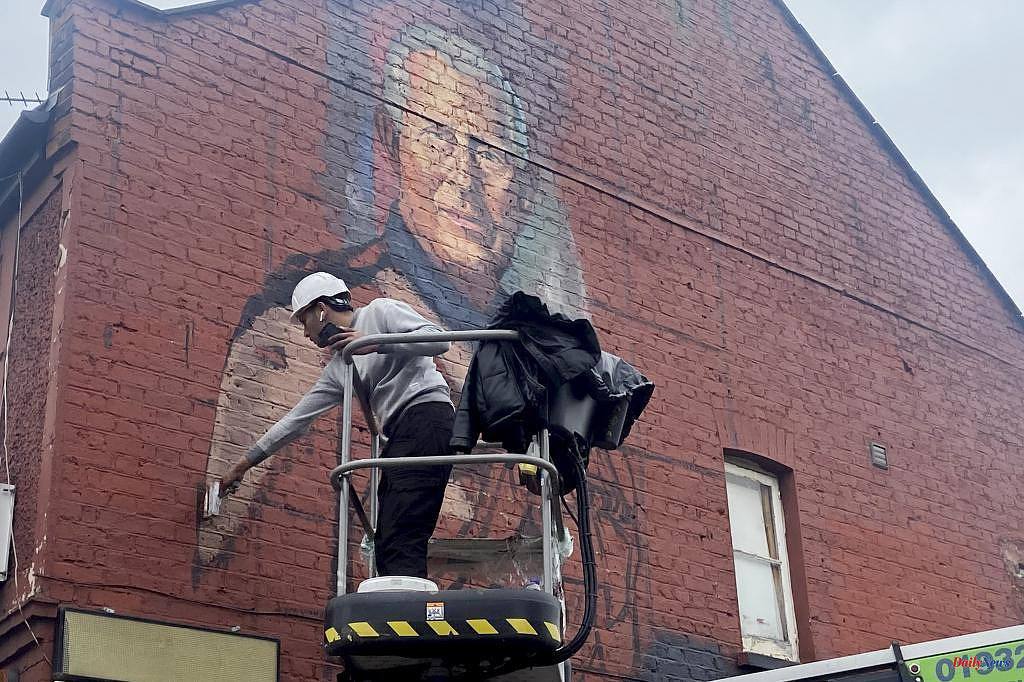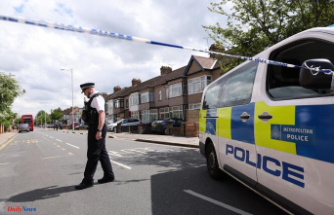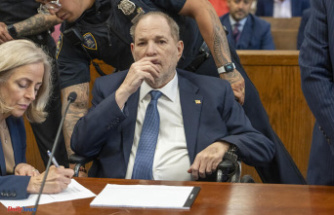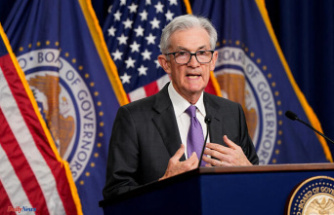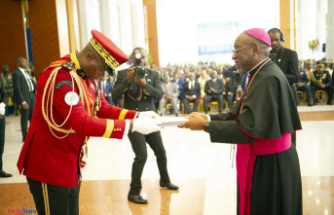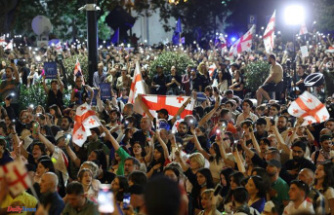"You will never be king." This was what Diana of Wales said to Carlos of England, almost as if it were a curse, during their stormy separation process. The prognosis could not be more wrong. This May 6, the eternal heir will be crowned in Westminster Abbey, just like his mother did more than 70 years ago.
The road to becoming head of state has not been easy. In fact, for a time it was speculated that he would never reign. Especially after the death of the Princess of Wales, after suffering a tragic car accident in 1997. At that time, surveys showed that 54% of the British considered that she should renounce the throne in favor of her son, William. Not only because of what happened with Diana, but because his offspring had -and maintains to this day- a better image than him. Although Monarchy experts always considered this as something impossible. This is how the historian Fernando Rayón explains it to EL MUNDO: "When everyone thought that Carlos was not going to inherit the throne, and that it was going to be for his son, he thought they did not know the essence of the British Monarchy."
This jump never took place, and the reality is that Carlos III relies on his eldest son to enhance both the image of the institution and his own. Guillermo's popularity ratings, since he was named Duke of Cambridge in 2011, have remained between 70 and 80%, while Carlos's are around 55%, according to the latest YouGov poll. It is not a bad fact, especially if one takes into account that the image that has been projected of him is that of a cold, disloyal and even violent person.
The fall in popularity originated in the 90s, when the princes of Wales made their separation public and the British people learned of the infidelity of the current king. This information, added to Diana's charisma and the affection that she aroused among the British, caused the biggest crisis in the image of Elizabeth II's eldest son.
It was in the year 1997 when the popularity of the monarch reached its worst moment. With the tragic death of Lady Di, public opinion turned its back on her even more. Despite the fact that the then heir to the throne had been one of the most sympathetic members of the royal family for years. "Being the origin of the difficult situation that Diana went through made her very unpopular with sectors of the British people who had connected with her," says Charles Powell, director of the Elcano Royal Institute, in statements to our pages.
Reaffirming this idea, Rayón assures that the great problem of Carlos of England "has been how he dealt with his divorce. What people expect of a monarch is that he is capable of controlling all personal circumstances, and he couldn't do it worse." .
Then began a long road for Carlos to recover the lost sympathy. Above all, he focused on getting the people to accept his personal situation and to see the woman he loved, Camila Parker-Bowles, with good eyes, which was not an easy task.
In a survey carried out by the British media a few days after Diana's death, 86% of citizens said that if Carlos married her, she should not be recognized as queen. The Ipsos portal also revealed in 1998, a year after the death of Lady Di, that respondents argued that if Carlos married Camilla he should not be allowed to become monarch.
Twenty-five years later the situation has been reversed and the former Duchess of Cornwall has managed to be accepted by her fellow citizens. In fact, the year of her marriage to her Carlos, in 2005, a new poll revealed that 63% of Britons agreed with her nuptials. Although 64% still did not see with good eyes that she became queen. This was something that undoubtedly affected Carlos's image. However, Camilla can boast that from this Saturday she and she will not even be called queen consort, but just queen. The sovereign's wife has the support of 41% of the British who welcome her recognition as such. Against her, 10% of her only accept her as a princess consort, 15% in no way and 34% do not care what title she carries from her.
The family environment is undoubtedly the one that has caused Carlos the most image problems. The most recent is the one in which he has starred with his son Harry. The Duke of Sussex published his memoirs in January, in which he did not leave his mother in a good place. The youngest son of the current monarch dares to describe him as a greedy person and jealous of his popularity, always aware of what others think, and in a constant fight against his daughters-in-law and sons to occupy the covers. But surprisingly, polls conducted in the UK on the same day the book was published showed that the scandal had a positive impact on the sovereign. His popularity rose two points, standing at 62%.
Surely the reinforcement to the image of Carlos is due to the fact that the monarch has remained silent on this issue. A line that the Royal House follows since the Dukes of Sussex attacked the institution in their television interview with Oprah Winfrey.
This opinion is shared by the correspondent for EL MUNDO in London, Carlos Fresneda, who points out that what the current sovereign has done so far is "not getting too involved, continuing to exercise the representative function. He has been on the sidelines, letting himself be seen, practically without speaking , following the dynamics set by the queen". Although it is true that this reinforcement of his popularity, it is not known if it is due to how he has dealt with this matter or if it is due to the fact that Harry is not well valued by the British population.
The current monarch has not only had family problems; he has also had to deal with another series of events that have sparked controversy among public opinion. One of them is to openly show his opinions on issues of a political nature, something that he will not be able to do now as a monarch, since he must be governed by the principle of neutrality.
Powell points out in this regard that Carlos III "knows that he has to be more discreet and careful. He has enough intelligence, experience and institutional support to know that people are watching him very closely and that he can no longer afford those joys".
The current monarch came to send letters as a prince to Prime Minister Tony Blair or the Minister of Health to deal with issues such as hunting, the equipment of British troops in Iraq or alternative medicine. And already as sovereign, his last great controversy of this nature occurred with the visit of the president of the European Commission, Ursula von der Leyen, to Windsor, in full negotiation between London and Brussels for the Northern Ireland Protocol, which was seen by various political leaders as political interference.
Although all this is out of the conventionalism of the Monarchy, the British claimed in 2018, with 46% votes in favour, that when Carlos became king he should be able to continue to rule on issues such as the environment, architecture, planning and alternative medicine, compared to 36% who considered that they should avoid talking about these aspects.
Fresneda points out on this issue that "it is something that divides people a lot, because his mother has set the example: not to interfere in politics, it is the reference and what they are used to".
Since he has been king, it is true that he has tried to restrain himself when it comes to showing his political thoughts. It is something that he goes with the charge. However, journalist Tom Burns Marañón assures EL MUNDO that "in the weekly meetings that he has with the prime minister, he can encourage him to do something or warn him where there may be problems."
Among his new challenges is trying to contain the independence movements, both in the Commonwealth territories that are under his mandate and, within the United Kingdom, in Scotland. Data published by the YouGov portal last December revealed that pro-Scottish independence stood at 53%. However, March polls lowered the figure to 46%, which eases the monarch's pressure on this issue.
The separation of the Commonwealth territories is a problem that Carlos inherits from his mother. The new sovereign has nothing left but to deal with the intentions of breaking ties with the Crown of Jamaica, Belize and Antigua and Barbuda. And, since his accession to the throne in September, Australia and New Zealand are also opening the door to embracing the republic.
As for its role within the Commonwealth, it is expected to perform very well and contribute to its renewal. Powell believes that this will be something that Carlos will achieve since "he is more restless than his mother and will be able to bring to those meetings topics that she did not master or that did not interest her as much as climate change, which for many of these countries are a priority".
On the other hand, voices like Rayón's consider that the Commonwealth of Nations has no future and that "little by little the territories will be separated because there is no economic reason to justify their maintenance."
Carlos III has a lot of work ahead of him. And as long as this new reign lasts, it will leave undoubted moments for posterity.
According to the criteria of The Trust Project

